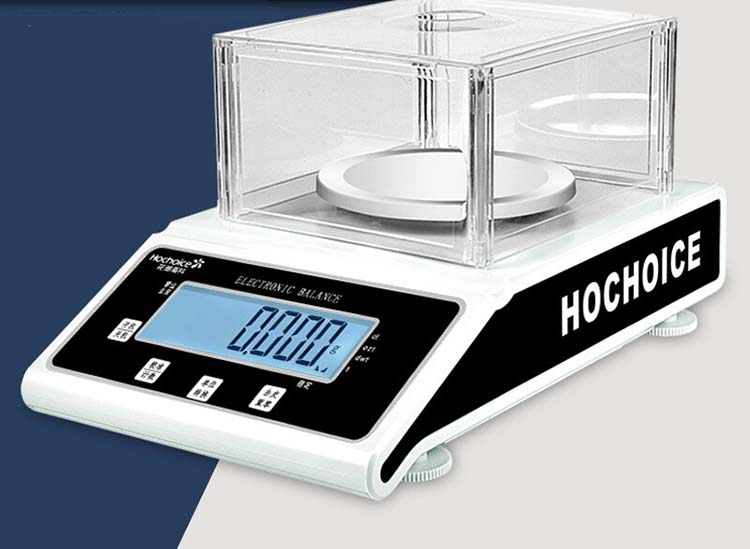How Much Does an Electronic Scale Cost? Understanding Price Ranges and Selection Tips
Electronic scales have become essential tools in everyday life and various industries. Whether it’s a kitchen scale, body weight scale, or a precision balance used in laboratories, electronic scales are known for their accuracy and convenience. If you’re considering purchasing an electronic scale, you might be wondering, “How much does an electronic scale cost?”

In this article, we will help you understand the price ranges of electronic scales, the factors influencing their prices, and how to choose the right one based on your needs.
What Factors Affect the Price of Electronic Scales?
The price of an electronic scale can vary widely depending on the following factors:
Type and Functionality
Different types of electronic scales are designed for different applications, leading to significant price differences. For example, a kitchen scale or a body weight scale for home use has simpler functions compared to a high-precision laboratory balance. Basic household scales are generally more affordable, while precision balances require higher accuracy and complex features, thus commanding a higher price.Measurement Accuracy
The more accurate the scale, the higher the price. For instance, a common household scale might have an accuracy of 0.1 kg, while a precision balance can measure down to 0.0001 g, which is necessary for scientific research or laboratory work.Brand and Manufacturer
There are numerous brands on the market, and well-known or highly reputable manufacturers typically offer higher-quality products. These products often come at a higher price due to better performance, durability, and customer support. Consumers can balance quality and cost by choosing a brand that suits their specific needs.Materials and Design
The materials and design of an electronic scale can also influence its price. High-end scales often use more durable, high-quality materials and have more sophisticated designs, contributing to both their longevity and user experience.Application Scenarios
Some specialized scales, such as medical height and weight scales or baby scales, are designed with more advanced features, which make them more expensive. Similarly, electronic platform scales used in commercial or industrial settings often need to handle larger capacities and heavier loads, which may increase the price.
Price Ranges for Electronic Scales
While the price of electronic scales varies based on several factors, here’s an overview of the typical price ranges for different types:
Household Electronic Scales
These scales are primarily used for daily tasks such as measuring body weight or ingredients in the kitchen. Prices for household scales can vary significantly, with options available for basic household needs.Precision Balances
Used in scientific and industrial applications that require high precision, such as laboratories, these balances are more expensive due to their enhanced accuracy and stability.Electronic Platform Scales
These are commonly used in commercial or industrial environments to weigh larger objects. They provide high accuracy and are often seen in warehouses, logistics, and supermarkets.Height and Weight Scales / Baby Scales
These specialized scales are used in medical settings, fitness centers, or at home. They are designed to measure body weight and height accurately and are commonly found in clinics, hospitals, and gyms.
How to Choose the Right Electronic Scale?
Clarify Your Needs
The first step in selecting an electronic scale is to understand your specific needs. Household scales for personal use are very different from industrial platform scales. Consider what you need to measure (weight, height, or other parameters) and choose a scale that fits those requirements.Focus on Accuracy and Stability
If you need high-precision measurements, such as in a laboratory or industrial environment, it’s crucial to select a scale with high accuracy and stability. Precision balances and high-accuracy platform scales are ideal for these applications.Consider the Brand and After-Sales Service
Opt for well-established brands with a good reputation and reliable after-sales support. High-quality brands will offer better performance and durability, and their customer service will assist you in case of any issues with the product.Price and Value for Money
Price is often a major consideration for consumers. When buying an electronic scale, ensure it meets your requirements while staying within your budget. Consider the scale’s features, quality, and long-term reliability to ensure you’re getting the best value for your investment.
Conclusion
The price of electronic scales varies significantly depending on type, functionality, accuracy, brand, and other factors. When choosing an electronic scale, it’s important to understand your own needs and compare the available options to make an informed decision. Whether you're looking for a simple household scale or a high-precision balance for professional use, selecting the right product will bring convenience and accuracy to your daily tasks or work.
For more information about electronic scales or to explore a variety of models, you can consult professional manufacturers like Hochoice, which offers a range of electronic scale solutions to meet different needs.


